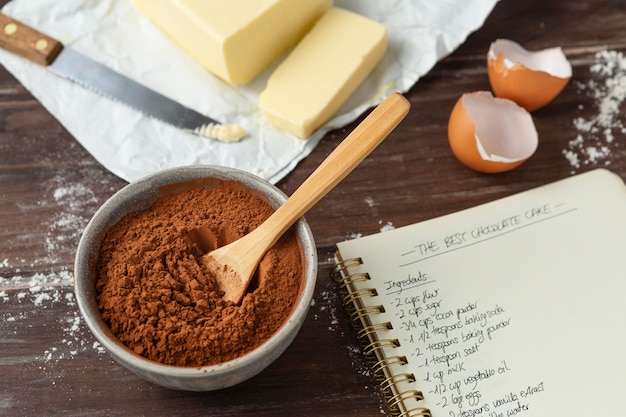Many individuals often find themselves puzzled by fluctuations in their body size and shape, attributing these changes to various factors such as diet and exercise. However, the influence of bodily moisture can play a pivotal role in this dynamic, leading to misconceptions and unnecessary concerns. Gaining clarity on this topic can empower one to make informed choices, enhancing overall vitality.
When exploring the intricacies of bodily moisture, several aspects come into play. From dietary sodium intake to hormonal fluctuations, multiple elements can contribute to temporary changes in body composition. By examining these factors closely, individuals may uncover essential information that fosters a more balanced relationship with their bodies.
The significance of maintaining equilibrium cannot be overstated. Grasping how to manage excess fluid without resorting to drastic measures is crucial for achieving personal wellness goals. Insight into this phenomenon not only aids in physical appearance but also promotes a healthier mindset and lifestyle.
What is Water Weight?
The concept of temporary mass that the body retains can often lead to confusion. This phenomenon can fluctuate due to various factors, affecting individuals in different ways. It is essential to grasp the implications of such fluctuations on overall wellness.
- Factors influencing this temporary mass include dietary choices.
- Hydration levels play a crucial role in retention.
- Physical activity can impact how much is held within the body.
- Certain medical conditions may also contribute to variations.
This phenomenon is typically not a sign of increased fat or muscle mass. Instead, it is primarily linked to the balance of fluids maintained within the body’s systems.
- High sodium intake can lead to greater retention.
- Carbohydrate consumption may also result in temporary increases due to glycogen storing water.
- Hormonal changes, especially during menstrual cycles, can cause noticeable shifts.
Recognizing these factors aids in better understanding how the body functions and can assist individuals in managing their well-being effectively.
Causes of Water Retention
Fluid accumulation in the body can stem from a variety of factors, each influencing the balance of bodily fluids. Various elements in lifestyle, diet, and health can contribute to this phenomenon, leading to temporary changes in appearance and comfort. Understanding these triggers can help individuals manage and mitigate their effects.
Dietary Factors
The consumption of certain foods can play a significant role in fluid retention. Sodium, commonly found in processed foods, can lead to excess fluid buildup as the body attempts to maintain an optimal balance. Additionally, insufficient intake of potassium may exacerbate retention, as this mineral helps regulate fluid levels.
Medical Conditions
Underlying health issues may also contribute to fluid retention. Conditions such as heart disease, kidney disorders, and liver problems can disrupt the body’s ability to manage fluids effectively. Hormonal fluctuations and medications, particularly corticosteroids and nonsteroidal anti-inflammatory drugs (NSAIDs), may further influence this condition.
| Factor | Effect on Retention |
|---|---|
| Sodium Intake | Increases fluid retention |
| Potassium Deficiency | May worsen fluid buildup |
| Heart Disease | Impairs fluid regulation |
| Kidney Problems | Limits fluid excretion |
| Hormonal Changes | Affects fluid balance |
| Medications | Can cause fluid retention |
Impact of Water Weight on Health
The fluctuation of fluid in the body can significantly influence various aspects of well-being. It plays a critical role in how individuals feel on a daily basis, affecting everything from energy levels to physical appearance. Understanding these effects can illuminate the connection between fluid retention and overall fitness.
| Factor | Effect |
|---|---|
| Hydration Status | Proper hydration enhances physical performance and cognitive functions. |
| Dietary Intake | High sodium consumption can lead to increased fluid retention. |
| Hormonal Changes | Certain hormonal fluctuations can cause variations in fluid balance. |
| Temperature and Climate | Hot weather can lead to increased perspiration, causing changes in fluid levels. |
| Exercise | Physical activity often causes temporary changes in fluid retention and loss. |
Awareness of these influences can promote healthier lifestyle choices and better physical conditioning. Monitoring changes in fluid levels is essential for managing one’s well-being effectively.
Hydration and Its Importance
Adequate intake of fluids is crucial for maintaining overall physical well-being. It plays a significant role in numerous bodily functions, from regulating temperature to facilitating digestion. Staying sufficiently hydrated ensures that each system operates optimally and contributes to comprehensive vitality.
Benefits of Staying Hydrated
Maintaining proper fluid levels can lead to enhanced energy levels, improved mood, and increased cognitive function. Additionally, sufficient hydration aids in nutrient transport and waste elimination, ensuring that the body functions efficiently. Individuals who prioritize hydration often experience better performance in both physical and mental activities.
Signs of Dehydration
Recognizing the early signs of insufficient fluid intake is essential to preventing complications. Common indicators include fatigue, dry skin, headaches, and reduced concentration. Addressing these symptoms promptly can help restore balance and promote well-being.
Tips to Manage Water Weight
Managing excess fluid retention can significantly enhance overall comfort and promote a sense of well-being. Adopting a few lifestyle changes can effectively help minimize unwanted bloat and improve your body’s ability to regulate itself.
Dietary Changes
- Increase potassium-rich foods: Incorporate items such as bananas, spinach, and avocados, as potassium helps balance sodium levels.
- Reduce sodium intake: Limit processed foods, fast food, and high-sodium snacks to prevent excess fluid retention.
- Stay hydrated: Drink plenty of fluids to support your body in flushing out unnecessary build-up.
- Include natural diuretics: Foods such as cucumber, watermelon, and ginger can assist in reducing swelling.
Lifestyle Adjustments
- Exercise regularly: Engaging in physical activity can promote circulation and help eliminate excess fluid.
- Limit alcohol consumption: Excessive drinking can lead to dehydration followed by further retention.
- Practice stress management: Techniques like yoga and meditation can help regulate hormonal fluctuations that affect fluid balance.
- Get adequate sleep: A proper sleep routine can aid in maintaining your body’s natural rhythms, assisting in fluid regulation.
Dietary Changes for Better Balance
Achieving equilibrium in bodily functions often requires adjustments in nutrition. A well-rounded approach to what is consumed can greatly influence overall wellness and promote a harmonious lifestyle.
Implementing specific alterations to your dietary habits can provide significant benefits:
- Incorporate a variety of fruits and vegetables to ensure a broad spectrum of nutrients.
- Opt for whole grains over refined options to enhance fiber intake.
- Include sources of healthy fats, such as avocados and nuts, to support cellular functions.
- Stay hydrated, focusing on beverages that contribute to fluid intake without added sugars.
- Limit processed and high-sodium foods, as they can disrupt the body’s natural balance.
Making small changes gradually can lead to sustainable habits that contribute positively to one’s overall state.
Additionally, mindful eating practices can encourage a more intentional relationship with food:
- Pay attention to hunger and fullness cues, eating only when truly necessary.
- Practice portion control to prevent overconsumption.
- Avoid distractions during meals to cultivate awareness of what is being consumed.
Overall, a focused approach to nutrition can pave the way for improved well-being and a more balanced physiological state.
Q&A: Water weight what you need know
How does water weight differ from fat weight, and why might fluctuations in your weight be caused by water retention?
Water weight is usually caused by the body holding on to extra water, which can lead to temporary weight gain. Unlike fat weight, which accumulates over time through excess calorie consumption, water weight is stored in the cells and can fluctuate daily due to factors such as high sodium intake, hormonal changes, or dehydration. Every gram of glycogen stored in the muscles and liver holds onto 3-4 grams of water, which can cause noticeable shifts in body weight. These fluctuations in your weight are normal and often temporary, especially if caused by water retention rather than fat gain.
What are some common causes of water weight, and how can drinking enough water help reduce water retention?
Common causes of water weight include consuming much sodium, hormonal changes, lack of physical activity, and not drinking enough water. When your body senses dehydration, it begins to hold on to extra water as a protective mechanism, causing water retention. Drinking enough water can help the body flush out excess water and sodium, reducing water retention over time. Proper hydration helps regulate your body’s water needs and prevents it from retaining water unnecessarily.
What are 8 easy ways to lose water weight quickly and reduce excess water retention?
There are 8 easy ways to lose water weight quickly, including drinking more water, reducing sodium intake, exercising regularly, managing stress, consuming less processed food, following a balanced carb diet, sleeping well, and using natural diuretics like herbal teas. These methods help your body reduce water weight and prevent water retention in the week ahead. Additionally, every gram of glycogen holds water in the muscles and liver, so adjusting carb intake can also help reduce water weight effectively.
When should persistent water retention be a cause for concern, and why might it require medical attention?
Persistent water retention may be a cause for concern if it’s accompanied by symptoms like swelling, discomfort, or sudden weight gain. While water retention is often harmless and caused by factors like excess sodium intake or hormonal changes, it can also be linked to an underlying health condition such as kidney disease, heart issues, or hormonal disorders. If you notice water retention that doesn’t improve with lifestyle changes, it’s essential to see a doctor. Strict sourcing guidelines and reliance on peer-reviewed studies emphasize the importance of identifying and addressing the root causes of persistent water retention.
How does excess water weight differ from fat gain, and why might weight gain happen due to water retention?
Excess water weight differs from fat gain because it is caused by water stored in the cells rather than accumulated fat tissue. Weight gain happens when your body begins retaining water due to factors such as high sodium intake, dehydration, or hormonal fluctuations. Every gram of glycogen stored in the muscles and liver binds with sodium and water, contributing to noticeable shifts in your weight. Unlike fat, which takes time to build up, water weight may fluctuate quickly throughout the body, depending on hydration and dietary habits.
What are some effective ways to reduce water retention and get rid of excess water weight?
There are several effective ways to reduce water retention and get rid of excess water weight. Drinking an adequate amount of water a day helps your body flush out sodium and toxins. Reducing sodium intake, engaging in regular physical activity, and consuming potassium-rich foods can also help balance sodium and water levels inside your body. Additionally, avoiding processed foods and managing stress are proven ways to reduce water retention. These strategies support long-term weight management and prevent your body from holding on to water unnecessarily.
How long does it typically take to lose water weight, and what factors influence this process?
The time it takes to lose water weight varies depending on the cause and your body’s response to changes in diet and activity. For most people, water weight may reduce within a few days of making adjustments, such as drinking much water, reducing sodium intake, and increasing physical activity. Factors like hormonal changes, carbohydrate intake, and hydration levels also play a role. Weight or water weight fluctuations can be normal, but consistent habits will help regulate the amount of water retained throughout the body.
Why is it essential to rely on strict sourcing guidelines and peer-reviewed studies when learning how to lose water weight?
Strict sourcing guidelines and reliance on peer-reviewed studies ensure that the information provided about water weight is accurate, evidence-based, and supported by academic research institutions. Learning how to lose water weight involves understanding complex interactions between sodium and water, glycogen storage, and hydration levels. Peer-reviewed studies provide credible insights into the type of water weight, its causes, and the most effective ways to reduce water retention. This approach helps individuals make informed decisions about their health and weight management strategies.





